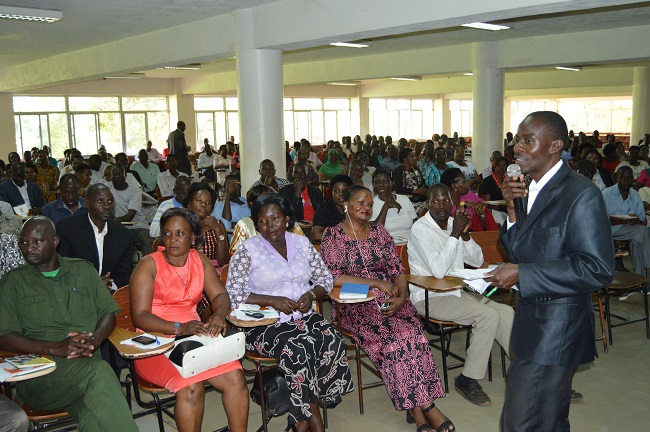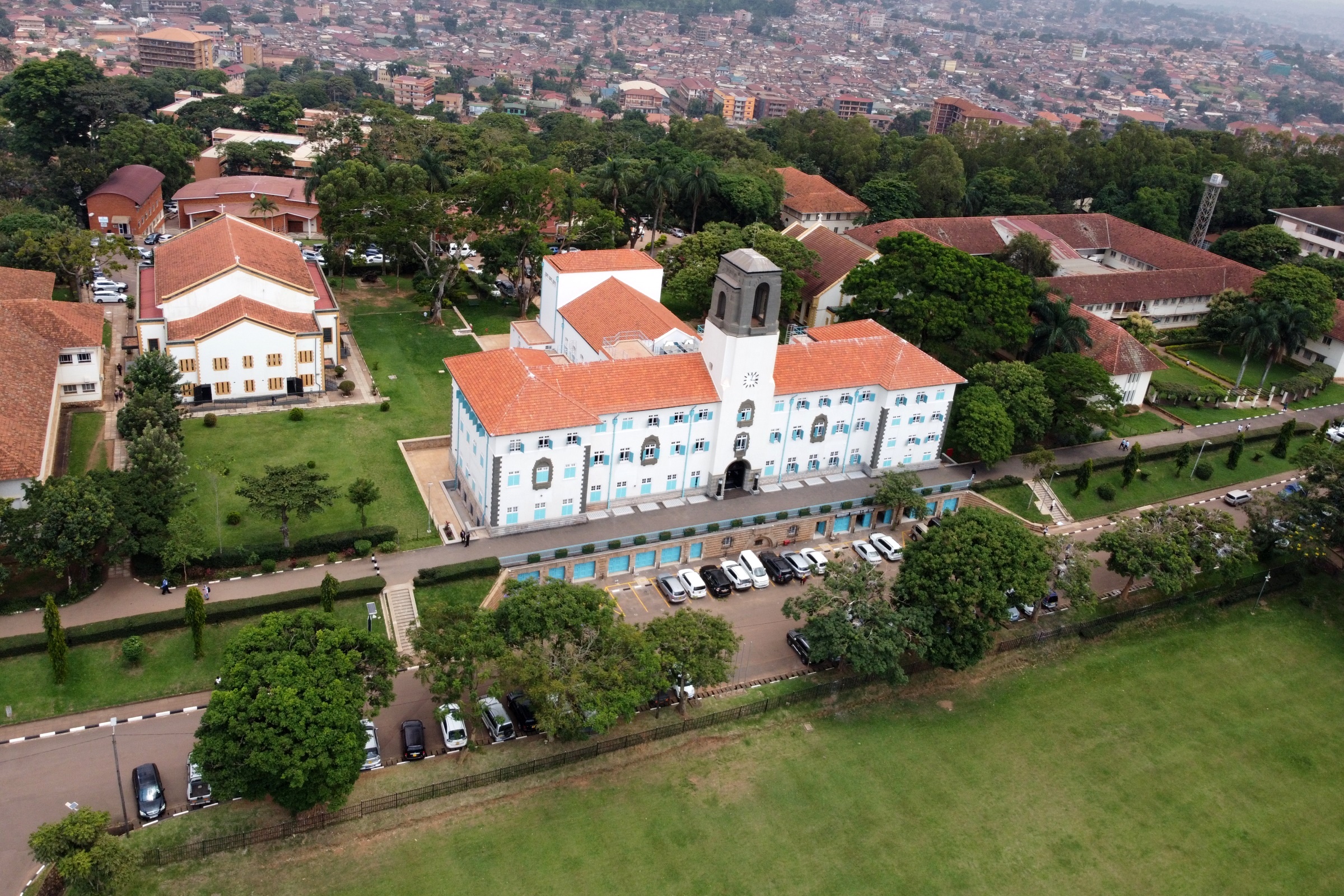On 25th October 2018, the National Union of Educational Institutions of Uganda (NUEI)-Makerere University Branch with support of the University Management organized a workshop to train Makerere University Support Staff on improving customer care services. Officially opened by the Vice Chancellor of Makerere University, Prof. Barnabas Nawangwe, the one-day workshop introduced participants to sustainable investment ideas and viable procedures of planning for their retirement.
The Vice Chancellor thanked Makerere University Support Staff for serving the University diligently. He urged staff to have a positive attitude towards their jobs and encouraged them to handle university customers with respect and care. “Students are our number one customers; we should therefore handle them with respect. Next on the list are the parents, visitors, collaborators among others,” said the Vice Chancellor.

Prof. Barnabas Nawangwe encouraged staff to market and promote Makerere University’s achievements when he said, “Makerere University belongs to all of us. We are the University, we must therefore protect its reputation and image. What we do will either lift its name or tarnish it.”
The Director of Human Resources, Mr. Andrew Abuyang appealed to staff to perform their duties with commitment and humility. “We should be proud of the organization that we are working with, be able to defend it. Most of us derive our livelihoods from here,” he explained.
The Chairperson of the National Union of Educational Institutions of Uganda (NUEI)-Makerere University Branch Mr. Twesigye Bruce emphasized the need to promote and recognize outstanding workers. According to him, this will increase productivity and efficiency among staff.

The well attended workshop, kicked off with a presentation from Hajati Sharifa Buzeki, Commissioner of Human Resource Management, Ministry of Public Service on proper customer care services. According to Hajati Buzeki, customer care is a vital element of institution- client relationship and can strongly impact the operations of the institution and its image. It consists of a collective set of policies that govern how the institution and its employees interact with its customers.
Therefore, to win the hearts of customers, she urged support staff to serve the clients with a positive attitude and humility. She also advised them to have respect to customers’ interests, use need technical support and knowledge to enhance the level of customer satisfaction.

“For Institutions like Makerere University to thrive, we should improve on how we handle clients. The Principle of Customer care states that; ‘do to the people what you want to be done to you’. We should therefore deliver well to the people’s expectations. At its core, quality customer service is about making sure our customers feel they are valued, treated fairly and appreciated,” she said.
Taking participants through the viable procedures of planning for their retirement, Mr. Joseph Njuguna, Manager for Scheme Operations at Octagon Uganda Limited said that retirees can easily lose all their benefits from late life experimental investments and can suffer personal life mishaps if they do not plan well for their retirement.
According to Mr. Njuguna, workers tend to perceive retirement more as a distant phenomenon. For many workers, retirement comes as a shock that is hard to contain.

“We need to have a solid plan for our desired lifestyle after retirement. We should make a financial plan, engage our legal officers, think of an income that will sustain us and be able to cater for both our insurance and medical needs. Remember that the more we age, the more we are susceptible to suffer from different illnesses. We should not look at our children as some form of insurance strategy. We need to be able to sustain ourselves with a good degree of independence since we have our retirement benefits as a starting point,” he said.
He demonstrated that about 75% of retirees who are paid lump-sum benefits consume them. He also illustrated that for lump-sum benefits received by retirees and invested in a business, 48% turned out to be unprofitable, 31% had operating profitability, and 21% collapsed.
He introduced members to a new retirement income option of Annuities; designed to protect people from the risk of outliving their income. According to him, Annuity arrangements allow the retiree to have guaranteed income for life or for a convenient number of years after retirement.

“This follows a stipulated premium paid by the person seeking the annuity (annuitant) either through prior instalments or in a single payment, such as a member’s accumulated (prescribed portion or all) benefits upon retirement. Annuities are provided by insurance companies which are licensed to provide this service in accordance with the Law,” he said.
Mr. Njuguna briefed participants on how to create suitable and sustainable businesses. He advised workers to always invest in businesses or services in which they have experience or knowledge. “Being a professor at University, does not guarantee that you are a professor in poultry farming. You need to invest wisely, ensure that the business or investment idea you are undertaking is in line with your knowledge, experience and interest in order to avoid severe losses. Before you start a business, know its challenges,” he advised.

The Principal of the College of Computing and Information Sciences Prof. Tonny Oyana advised staff to use the financial wisdom given by God when investing in businesses. “God designed us to thrive and gave us a business model. God says if you are hardworking, He will reward you and if you are lazy you will die of poverty. Work hard and plan for yourself and your family,” he said.
Mr. Joseph Musoke, the representative of the support staff on the Makerere University Council, thanked the organizers for the successful workshop. He also appreciated the presenters for the informative and inspirational interactions.
Article by Nabatte Proscovia, Mak Public Relations Office.


 General2 weeks ago
General2 weeks ago
 General1 week ago
General1 week ago
 General4 days ago
General4 days ago
 Natural Sciences4 days ago
Natural Sciences4 days ago
 Health6 days ago
Health6 days ago








